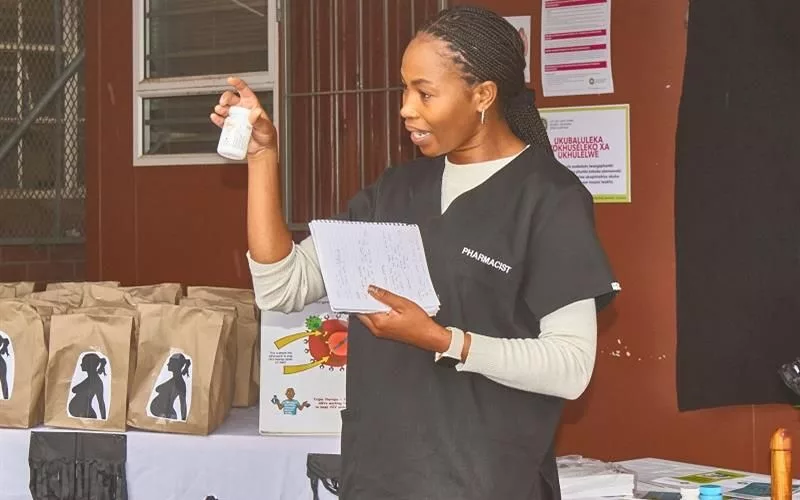Cape Town is facing an alarming surge in teenage pregnancies, with a 78% increase in the number of adolescent girls seeking their first antenatal visit during FY 2022-2023. This rise is accompanied by a significant drop in the use of contraceptives, highlighting the need for comprehensive sex education and awareness initiatives. The situation poses a significant risk to the young mothers’ education and future, emphasizing the need for coordinated public health interventions to address the issue. Despite the concerning trend, there are some encouraging developments, such as the rise in the number of individuals seeking Pre-Exposure Prophylaxis (PrEP) to prevent HIV.
An Alarming Surge in Teen Pregnancies
Cape Town’s Health Department recorded a concerning increase of 78% in the number of adolescent girls coming for their first antenatal visit during FY 2022-2023. This trend was accompanied by a significant decrease in clinic visits for contraceptive services, indicating a connection between low contraceptive use and high teenage pregnancies. The situation calls for comprehensive sex education and awareness initiatives to be put in place.
Cape Town, the city that rests beneath the iconic face of Table Mountain, is currently dealing with a growing problem. The city’s Health Department has identified a noteworthy upsurge in teenage pregnancies, casting a shadow of concern over the promising future of the city’s youth.
This rising trend does not exist in isolation but has emerged in conjunction with an overall decline in the use of contraceptives. The merge of these factors presents an unsettling image of the city’s public health situation.
An Alarming Surge in Teen Pregnancies
During the fiscal year 2022-2023, a disturbing increase was recorded in the number of adolescent girls coming for their first antenatal visit. Data shows a rise from 355 girls in the previous year to 632, indicating an approximate 78 percent escalation. This growing trend was not an isolated event but was seen across all City Health districts.
Alongside the unsettling rise in teen pregnancies, there was a noticeable decrease in clinic visits for contraceptive services. An assessment of data from the same fiscal year indicates a significant decrease in the distribution of both female and male condoms. The quantity of female condoms distributed dropped drastically from 671,488 to a mere 451,271, while the use of male condoms declined from 29,086,050 to 19,259,681. These statistics equate to an unsettling decrease of over 30% in condom use.
The Connection Between Low Contraceptive Use and High Teenage Pregnancies
This drop in contraceptive use and the simultaneous rise in teenage pregnancies can’t be brushed aside as mere coincidence. It highlights a deeper problem that needs to be addressed. It emphasizes the crucial need for comprehensive sex education and awareness initiatives, given the high stakes involved. Teen pregnancy impacts not only the young mother’s education but also puts her future at risk, posing a significant hurdle to her personal development and productivity.
In light of this growing problem, initiatives like the Condom and STI Awareness Week aim to dispel myths about condom use and foster informed discussions about sexual health. These initiatives stress the importance of not only preventing pregnancies but also controlling the spread of sexually transmitted infections.
Encouraging Developments Amidst Worrying Trends
Despite the worrisome statistics, there are some rays of hope. The number of individuals beginning Pre-Exposure Prophylaxis (PrEP), a strategy to prevent HIV, has more than doubled from 3,266 to 6,796. Since PrEP was introduced at City Health facilities two years ago, more than 12,000 people have started treatment.
While the rise in PrEP usage is a positive development, it is crucial to support these efforts with stronger awareness campaigns. These campaigns should not only advocate safe sex practices but also foster dialogue around sexual health, thus enabling individuals to make informed decisions about their sexual well-being.
The Need for Coordinated Public Health Interventions
The increase in teenage pregnancies in Cape Town is a multifaceted issue that highlights the pressing necessity for coordinated public health interventions. It’s a call-to-action for policymakers, healthcare providers, and society as a whole to step up and pave the way for a healthier, more informed future for the city’s youngest inhabitants.
1. What is the current situation in Cape Town regarding teenage pregnancies?
Cape Town is currently facing an alarming surge in teenage pregnancies, with a 78% increase in the number of adolescent girls seeking their first antenatal visit during FY 2022-2023.
2. What is the connection between low contraceptive use and high teenage pregnancies?
There is a connection between low contraceptive use and high teenage pregnancies, as a significant decrease in clinic visits for contraceptive services was recorded alongside the rise in teenage pregnancies.
3. Why is comprehensive sex education and awareness initiatives necessary in Cape Town?
Comprehensive sex education and awareness initiatives are necessary in Cape Town to address the growing incidence of teen pregnancies, as it poses a significant risk to the young mothers’ education and future.
4. Are there any encouraging developments amidst the worrying trends in Cape Town?
Yes, the rise in the number of individuals seeking Pre-Exposure Prophylaxis (PrEP) to prevent HIV is an encouraging development amidst the worrying trends in Cape Town.
5. What is the significance of the need for coordinated public health interventions in addressing teenage pregnancies in Cape Town?
There is a pressing need for coordinated public health interventions in addressing teenage pregnancies in Cape Town. It’s a call-to-action for policymakers, healthcare providers, and society as a whole to step up and pave the way for a healthier, more informed future for the city’s youngest inhabitants.
6. What initiatives are being undertaken in Cape Town to address the problem of teenage pregnancies?
Initiatives like the Condom and STI Awareness Week aim to dispel myths about condom use and foster informed discussions about sexual health. Additionally, PrEP has been introduced at City Health facilities, with more than 12,000 people starting treatment in the past two years.








